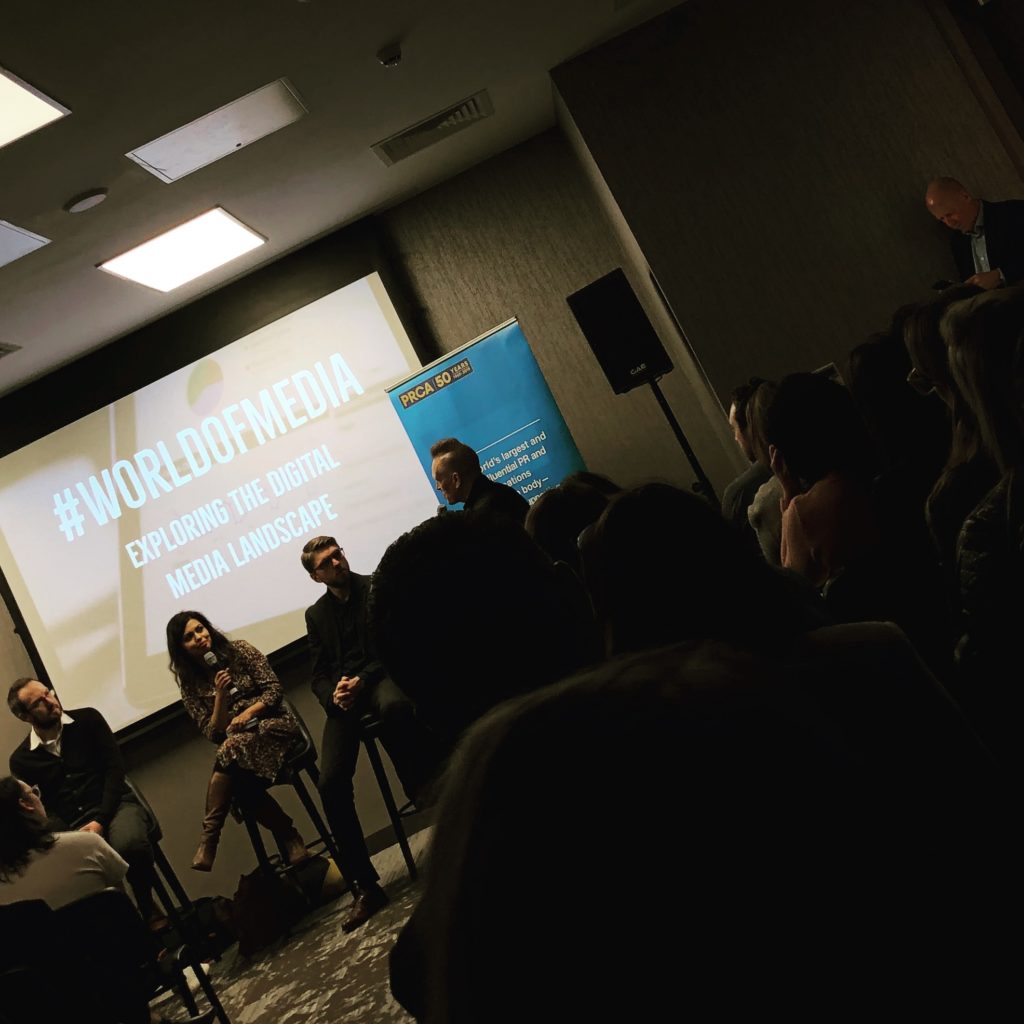DIGITAL CONTENT: MAKE IT BLOODY INTERESTING!
I’ve been a member of the PRCA Northern Committee for a few months now and we decided we wanted to put on meet the media events in the north to rival those that the London teams do.
Creativity isn’t born in London is a bit of a matra here at Brazen and we also wanted to show that our PR scene is just as engaged, vibrant and dynamic as the big smoke.
So we devised a series of three events to start a discussion around the future of three key types of media – digital, print and broadcast.
The first event, which was hosted by the inimitable John Robb at the AC Manchester City Centre hotel, saw great debate about the rise of digital media.
Journalists and editors from Ladbible, BBC Online, Reach Plc and The Manchester Evening News were panellists and the insightful discussion looked at how each site measures their digital success, their biggest bug bears and also importantly how PRs can help.
One of the key insights to come out was the pressures digital media channels are under themselves to constantly innovate and also that dwell time on a story is their most important metric. So as PRs we can help with imagery (landscape in colour is best), video content and also a story that’s really relevant to their audience.
Several of our account execs attended the event and these are their key take outs:
Sophie: “One really interesting point was how they’re all more mindful of the accuracy of content they’re producing. Gone are the days of trying to get the story out first. The panellists agreed that holding back a story for all the facts is definitely not a bad thing. Just look at the unresearched reporting and scare tactics involved with the recent Momo hoax story, being first doesn’t necessarily mean being right!”

Faith said: “Ed from Reach talked about how especially important social media channels were for the local papers within the group and that they have more reach on social now than print did back in the 1980s. So it shows what a valuable source they are for local news and as PRs we shouldn’t necessarily just focus on the main websites.”
Kristian added: “The thing that resonated with me the most from the event was that you must think about their audience first.
“Just because there is more space for stories online, if you’re pitching a story about an upcoming bake sale in in a regional area of the country to a national title, then you’re simply wasting your time as you would be for print.
As LADBible’s Simon said: ‘Would I click, would I engage with it and would I talk about it down the pub?, if not, don’t send it to me’.”
Charlotte: “As execs we all know the struggle of trying to get through to that key contact, or making call after call to land a story. But it was great to hear what life is like on the other end of that phone call, and why it is so difficult to get through. Shelina divulged that she receives a call EVERY 10 SECONDS, which has resulted in her only picking up the phone from time to time.
“She, along with all journalists, is inundated with emails on a daily basis and that’s why it is so crucial to make emails short, snappy and to the point. It was interesting to hear that Shelina actually prefers email contact, and although that can’t be said for everyone, she finds it the most efficient way to sift through the endless press releases and potential stories.”
What resonated with me most overall was that digital media should be treated in the same way as print has always been treated traditionally – they want relevant, well written content that’s timely and of interest. While there potentially are more avenues to get your story online, help that journalist out by giving them what they need and when they need it. Classic PR 101.

